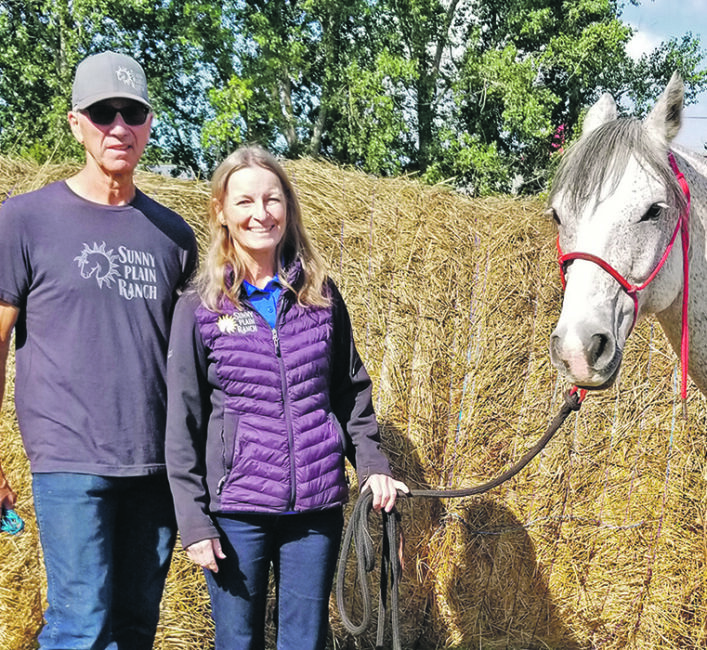Horse owners struggle with shortage of good-quality hay

A boarding facility near Saskatoon says finding adequate feed supplies has been its number one concern this year
SASKATOON — With 10 horses of their own and another 28 boarding on their property near Clavet, Sask., Gayle Smith and Alf Epp of Sunny Plain Ranch run one of the largest equine boarding facilities in the Saskatoon area.
Sunny Plain is busy with English and Western discipline lessons and visiting clinicians. Smith and Epp are members of the Saskatoon polocrosse community and play the sport with their horses throughout the summer. Sunny Plain also operates a small sport horse breeding program that produces well-broke, skilled prospects.
Horses have sensitive stomachs and intestines so clean, nourishing hay is important. Stable owners can be discerning customers when it comes to purchasing feed.
“Poor quality hay is not an option for feeding our horses. Vet bills would increase and our boarders could leave. The hay needs to be free from weeds and it can’t be dusty or mouldy. Equine respiratory issues are common, and their lungs are so important,” said Smith.
Sunny Plain has recently increased prices for its boarders and lease riders due to hay prices and the regional shortage of high-quality hay.
“Sourcing hay has been our number one concern this year. It needs to be grassy with some alfalfa, with the right amount of protein and carbohydrates. Due to the drought, we kept especially close contact with our suppliers. These regular suppliers are key for purchasing larger quantities. I make sure to touch base with our local suppliers throughout the spring and summer,” said Epp.
In addition to the need for high-quality hay, the COVID-19 pandemic has brought an increased interest in equestrian sports. Stables across Saskatoon are booked up with waiting lists for child and adult lessons.
Well-broke, safe horses and ponies are selling for double the usual price. In spring, Smith had a well-trained Thoroughbred mare sell in less than 48 hours with multiple potential buyers.
“While riders on a fixed income might reconsider keeping an older or unsound horse over the winter due to the cost, there is a lot of demand for ridable, sellable horses right now across the province. During the pandemic, the calming nature of working with a large animal with a big heart has become even more apparent,” said Smith.
North of Osler, Erin McCormick owns Equilibrium Therapeutic Riding and offers therapeutic horse riding for children and adults with impairments. She has 15 horses on the property and 10 are dedicated to her therapeutic riding program. A pony club also operates out of the facility. McCormick is currently coaching an adult rider to qualify in dressage for the Paris 2024 Paralympic Games.
“Horses that are suitable for therapeutic riding need to be quiet and safe, so three of the horses I use in the program are geriatric (more than 20 years old). Due to their age, these horses eat soaked hay cubes, which are a specialized product and cost more. Older horses can have respiratory issues, so they need super high-quality feed,” said McCormick.
Funding for some of McCormick’s students comes through Saskatchewan’s Child and Family Services, as well as the provincial government’s Cognitive Disability Strategy.
Interacting with equines on a regular basis has also shown to be beneficial for youth at risk.
Due to COVID-19, the riding lessons offered at Equilibrium are all private.
McCormick said prices for suitable hay have increased 30 percent or more with the drought. In June, she increased her lesson prices and she recently raised prices by $30 a month for her boarders.
“I teach 80 riders a week and there is still no way for me to meet the current demand for general and therapeutic riding lessons. I’ve been doing this for 20 years and it’s not a super-lucrative business. Luckily, I’ve purchased my hay from one farmer and his son for the past 15 years and their prices are reasonable,” said McCormick.
For more content related to drought management visit The Dry Times, where you can find a collection of stories from our family of publications as well as links to external resources to support your decisions through these difficult times.
Source: producer.com


